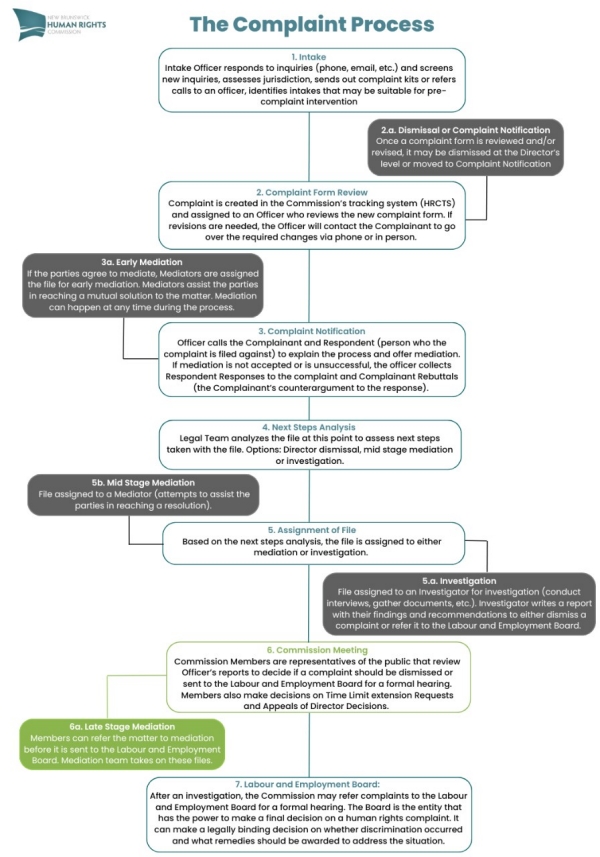
The New Brunswick Human Rights Act prohibits discrimination and harassment based on 16 protected grounds of discrimination (ex: race, disability, gender identity, family status, etc.) in 5 protected areas of discrimination (ex: employment). If you believe that you have experienced discrimination based on a protected ground, you can file a complaint with the New Brunswick Human Rights Commission.
To file a complaint, you must use the forms approved by the Commission. Complaints can typically be filed for incidents that occurred within the last 12 months. In cases where a continuing violation is alleged, the complaint should be filed within one year of the last alleged incident of the violation.
If your complaint or part of your complaint is not filed within the one-year time limit, you will need to file a Time Limit Extension Request Form along with your Complaint Form. Please consult the Commission’s Guideline on Time Limit Extension for Complaint Initiation when filling out your Time Limit Extension Request Form.
If you wish to discuss a situation you are experiencing and want to know more about filling a complaint, you can contact the commission at (506) 453-2301 or [email protected]. You don’t need to provide your name when contacting the Commission initially, however, it isn’t possible to file a complaint anonymously.
When you contact the Commission, our staff can provide information on how the New Brunswick Human Rights Act may or may not apply to your situation and can also explain the complaint process. They may also refer you to another government agency, organization or to legal advice if your situation does not fall under the Commission’s jurisdiction. If you decide to file a complaint, our staff can send you a complaint kit or refer you to this webpage to retrieve the forms digitally. Please note that our staff cannot provide legal advice or tell you what to include in your complaint form.
If you are unable to fill out the forms on your own, for example due to a disability, and you require an accommodation, please contact the Commission.







